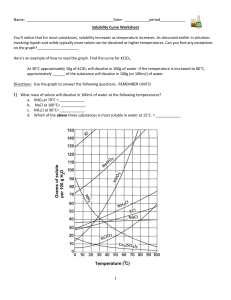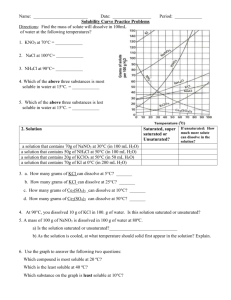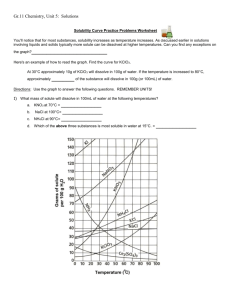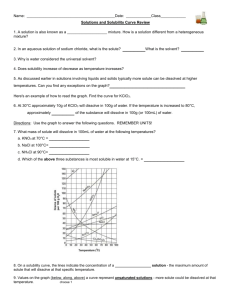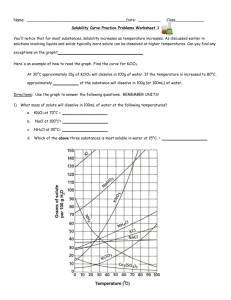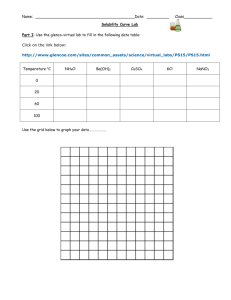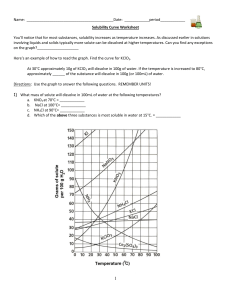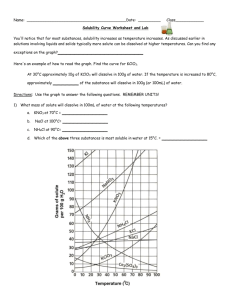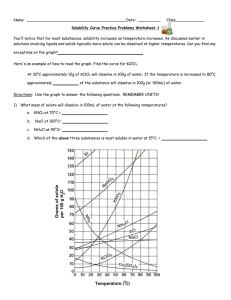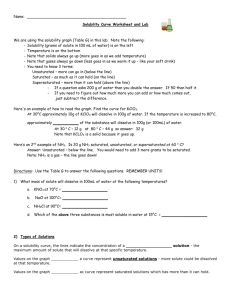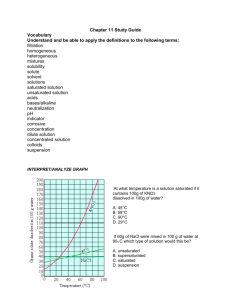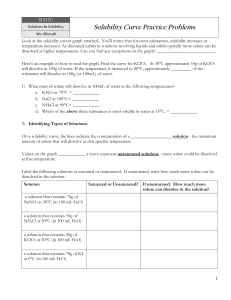Solubility Curve Practice Worksheet
advertisement
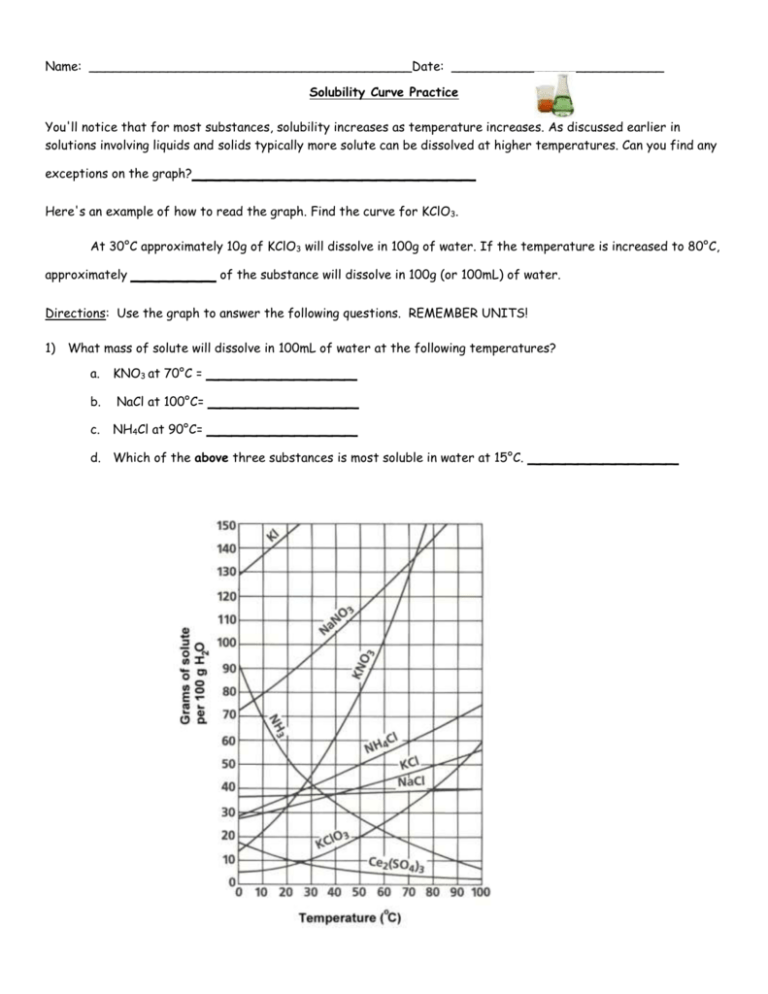
Name: _________________________________________Date: ___________________________ Solubility Curve Practice You'll notice that for most substances, solubility increases as temperature increases. As discussed earlier in solutions involving liquids and solids typically more solute can be dissolved at higher temperatures. Can you find any exceptions on the graph? ____________________ Here's an example of how to read the graph. Find the curve for KClO3. At 30°C approximately 10g of KClO3 will dissolve in 100g of water. If the temperature is increased to 80°C, approximately ______ of the substance will dissolve in 100g (or 100mL) of water. Directions: Use the graph to answer the following questions. REMEMBER UNITS! 1) What mass of solute will dissolve in 100mL of water at the following temperatures? a. b. c. ____________ NaCl at 100°C= ____________ NH4Cl at 90°C= ____________ KNO3 at 70°C = d. Which of the above three substances is most soluble in water at 15°C. 1 ____________ 2) Types of Solutions On a solubility curve, the lines indicate the concentration of a __________________ solution - the maximum amount of solute that will dissolve at that specific temperature. Values on the graph ____________ a curve represent unsaturated solutions - more solute could be dissolved at that temperature. Label the following solutions as saturated or unsaturated. If unsaturated, write how much more solute can be dissolved in the solution. Solution Saturated or Unsaturated? a solution that contains 70g of NaNO3 at 30°C (in 100 mL H2O) a solution that contains 50g of NH4Cl at 50°C (in 100 mL H2O) a solution that contains 20g of KClO3 at 50°C (in 100 mL H2O) a solution that contains 70g of KI at 0°C (in 100 mL H2O) 2 If unsaturated: How much more solute can dissolve in the solution? Homework – Use the Solubility Graphs on Page 1 1. a. b. c. d. What is the solubility of KCl at 5C? _______ What is the solubility of KCl at 25C? _______ What is the solubility of Ce2(SO4)3 at 10C? _______ What is the solubility of Ce2(SO4)3 at 50C? _______ 2. a. At 90C, you dissolved 10 g of KCl in 100 g of water. Is this solution saturated or unsaturated? b. How do you know? 3. A mass of 100 g of NaNO3 is dissolved in 100 g of water at 80ºC. a) Is the solution saturated or unsaturated?______________________________ b) As the solution is cooled, at what temperature should solid first appear in the solution? Explain. 4. Use the graph to answer the following two questions: Which compound is most soluble at 20 ºC? ________ Which is the least soluble at 40 ºC? ________ 5. Which substance on the graph is least soluble at 10C? __________ 6. A mass of 80 g of KNO3 is dissolved in 100 g of water at 50 ºC. The solution is heated to 70ºC. How many more grams of potassium nitrate must be added to make the solution saturated? Explain your reasoning (See question #2 on the other side for a hint) 7. Elements review: Fill in the chart below for some of the compounds on the graph: Formula Example: NaCl # of atoms in formula Na = 1 If the following amounts of solute are dissolved in 100 mL of water: Is the solution SATURATED OR UNSATURATED 3 grams dissolved at 0ºC Cl = 1 unsaturated 120 grams dissolved at 0ºC KI 7.2 grams dissolved at 70ºC Ce(SO4)3 11 grams dissolved at 46.7ºC NH4Cl 3
